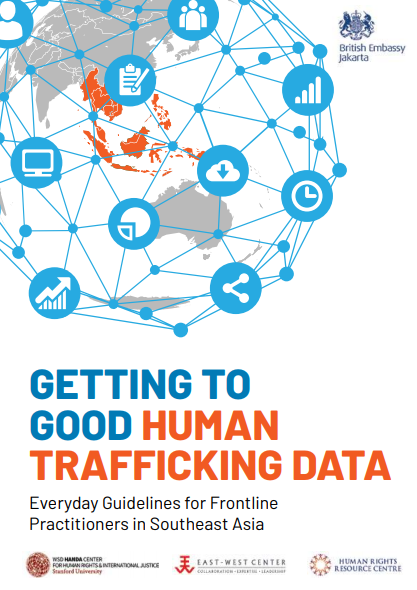By Jessie Brunner
Executive Summary
These practical guidelines aim to be a resource to support that effort to combat human trafficking, motivated by the passionate belief that good data are essential to achieving our shared goal. There are many yet unanswered questions about the nature, scale, and scope of the problem, and until the anti-trafficking movement has higher-quality, localised data, implementing effective policies and programmes – and being able to evaluate their impact – will remain a significant challenge.
Ultimately this document serves as a catalyst to assess and enhance existing data collection efforts – tailored to the local context with a view to the regional potential – for good, responsible data to combat human trafficking. There is no single, perfect database that can answer all of our questions, but by working as best we can to strengthen and standardise our approach to data collection, we will encourage comparability of data across the movement.
The guidelines are the result of in-person interviews conducted over a period of three months with anti-trafficking practitioners from both government and civil society in four Southeast Asian nations, with additional input from international experts both on human trafficking and data management. These meetings were aimed at identifying promising practices and understanding the most significant challenges for those people doing the critical day-to-day work – from investigating cases to serving survivors – of the anti-trafficking movement. Those perspectives directly informed the content of these guidelines, making it tailored to the region of Southeast Asia, but widely applicable.
This guide is intended to serve as a reference document, offering baseline standards and recommendations based on current understanding around good, responsible data practices. The norms, laws, regulations, tools, and technologies relevant to data collection are rapidly changing; thus, practices will need to be revised and updated over time. Because each individual and organisation working in the anti-trafficking field has distinct capacities, needs, and resources, we recognise that this manual cannot be exhaustive or relevant for all actors, but we have endeavoured to cover key concepts that can be helpful to the most general possible audience.

